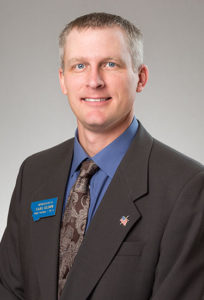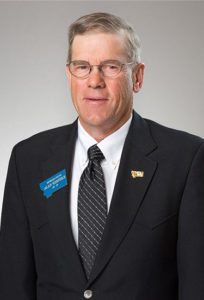Volume 22, Number 4 — March 3, 2017, PDF Version
Legislators are heading into their half-time break, but MEIC is still working hard to support clean energy, clean water, and clean air, and we need your help too! Make a few phone calls, send a few emails, or talk to your legislator, and help protect Montana’s right to a healthy environment. There are several bad bills working their way through the legislature that would significantly harm clean energy development in Montana.
You can leave a message for individual legislators, as well as House and Senate Committee members, by calling legislative services (406) 444-4800 from 7:30 A.M. to 5:00 PM (the legislative services message line will not be accepting messages March 2-3). You can also email legislators and committee members by using the links provided below. You can reach the governor by calling (406) 444-3111.
Protecting Water
Montana’s water, a scarce resource, is being strained by the legislature. Montanans have constitutional rights that protect water quality and water quantity. These rights are being threatened by bills that attempt to roll back protections for clean water and responsible water use.

Representative Carl Glimm
Perhaps the most troubling water bill this session is HB 339 (Rep. Carl Glimm, R-Kila). This bill would re-open the exempt well loophole and overturn a Supreme Court decision protecting Montana’s water resources and property rights. Developers would have the right to install wells that deplete streamflows, undermine senior water rights, increase sprawl, and intensify conflict among water users. It would be irresponsible to impose arbitrary guidelines for water use in a state with complex hydrology and already over-allocated streams. HB 339 passed the House 62-38 and will be heard in the Senate Natural Resources Committee soon. Contact committee members and ask them to vote no.
HB 455 (Rep. Forrest Mandeville, R-Columbus) would require the Department of Environmental Quality to rewrite nondegradation water quality rules for subdivisions. Montana already has rules and statutes preventing pollution of high quality waters. The bill directs DEQ to establish exemptions to nondegredation rules for subdivisions based on a predetermined generic distance and appears to direct the Board of Environmental Review to adopt whatever rules DEQ develops. This bill passed the House 58-41 and will be heard in the Senate soon. Ask your Senator to oppose this bill.

Senator Chas Vincent
There is no compelling need for Montana to assume jurisdiction over the Federal Clean Water Act’s section 404 permitting program. However, SB 48 (Sen. Chas Vincent, R-Libby) would direct the Department of Environmental Quality to assume the federal dredge and fill permitting program, currently overseen by EPA and Army Corp of Engineers. The bill would require the state to spend $1.6 million annually. This bill will be heard by the House Natural Resources Committee on March 10th. Contact committee members and ask them to vote no.
SB 248 (Sen. Mark Blasdel, R-Kalispell) would allow anyone who uses the family transfer exemption under the Subdivision and Platting act to avoid subdivision review to also receive an exemption from obtaining a water right for a well pumping up to 35 gallons per minute. This bill would compound the problems caused by the family transfer exemption by also allowing people to harm senior water right holders. A hearing is scheduled for March 8th in the House Natural Resources Committee. Contact committee members and ask them to vote no.
The Montana Water Court was established and funded to adjudicate water rights in Montana. Its purpose is limited, but its job is immense. SB 28 (Sen. Chas Vincent, R-Libby) seeks to expand the Water Court’s duties beyond adjudication matters. This bill would allow a developer to avoid district court and instead have the water court rule on changes in use of water rights, new ground water pumping applications, water right transfers, or new surface water right applications. The Water Court does not have the expertise or time to deal with these issues. The bill passed the Senate and will be heard in the House Judiciary Committee in the next few weeks. Contact committee members and ask them to vote no.
Renewable Energy
Montanans support a clean energy future. The legislature and NorthWestern Energy seem intent on stopping clean energy in its tracks. Numerous bills aim to limit clean energy job development, give monopoly utilities more control, and hinder the public’s ability to choose clean energy options for themselves.

Representative Alan Redfield
HB 205 (Rep. Alan Redfield, R-Livingston) would impose annual fees on electric and hybrid vehicles to supposedly compensate lost gas tax revenue for road maintenance. Hybrid vehicles already pay gas taxes with some vehicles getting as little as 21 miles per gallon. The fee is arbitrary and punitive. This bill will be heard on March 9th in the Senate Highway and Transportation Committee. Use MEIC’s petition tool to contact committee members and ask them to vote no.
SB 7 (Sen. Pat Connell, R-Hamilton) is an attack on Montana’s homeowners and the state’s burgeoning rooftop solar industry. The bill would discriminate against net-metering customers (those who generate small amounts of electricity using renewable resources such as solar on their homes and businesses) by saying net metered systems cannot be subsidized by other users. The bill ignores the fact that the system is full of users who subsidize other users and the bill ignores the value that solar adds to the system. The bill passed the Senate and is awaiting action in the House Energy Committee. Contact committee members and ask them to vote no.

Senator Keith Regier
SB 32 (Sen. Keith Regier, R-Kalispell) would undermine Montana’s Renewable Energy Standard by repealing the section of law that requires NorthWestern Energy to purchase a small portion of its electricity from community renewable energy projects, such as small-scale wind and solar projects. These projects help to diversify NorthWestern’s portfolio, create jobs, and provide local tax revenue to communities across the state. The bill passed the House and Senate and is on its way to the Governor. Contact Governor Bullock and ask him to veto this and other bad energy bills. You can reach the governor by calling (406) 444-3111 or e-mailing him at governor@mt.gov.
SB 78 (Sen. Keith Regier, R-Kalispell) attacks solar energy development in Montana by mandating changes to rules set by Public Service Commission experts. It would mandate net metering credits be valued at “avoided cost,” a specific valuation methodology that would tie the commission’s hands from using its expertise. It discriminates against net metering customers by adding a new, separate fee on net metering customers ostensibly to cover utility infrastructure costs. These customers already pay this cost in the rates paid for energy purchased from the utility. Net metering customers would pay twice for infrastructure. This bill will be heard on March 8th by the House Energy Committee. Contact committee members and ask them to vote no.
HB 219 (Rep. Zach Brown, D-Bozeman) would require NorthWestern Energy to prematurely conduct a cost-benefit study of net metering by April 2018. The Public Service Commission would use the results to make changes to the net metering program. Utility experts say a cost-benefit study should be done when at least 1.0% of a utility’s energy needs are met by net metering. Currently, net metering contributes to about 0.07% of NorthWestern’s energy needs. A premature analysis could easily lead to unreliable results. It is also concerning that NorthWestern, a monopoly utility that is aggressively hostile toward net metering, will conduct the study. HB 219 will be heard by the Senate Energy Committee in the next few weeks. Contact committee members and ask them to vote no.
Want more updates like this? Sign up for MEIC’s Action Alert Network!

